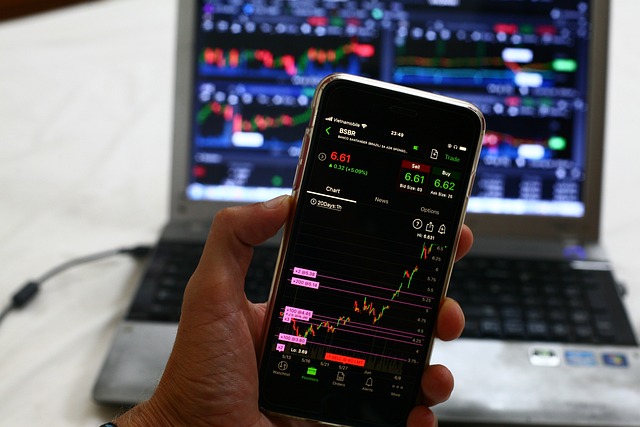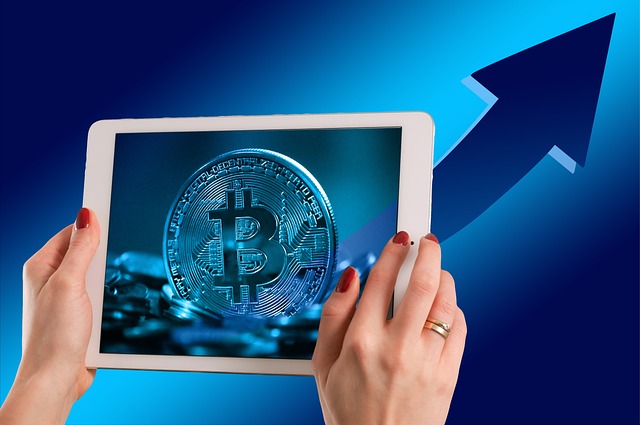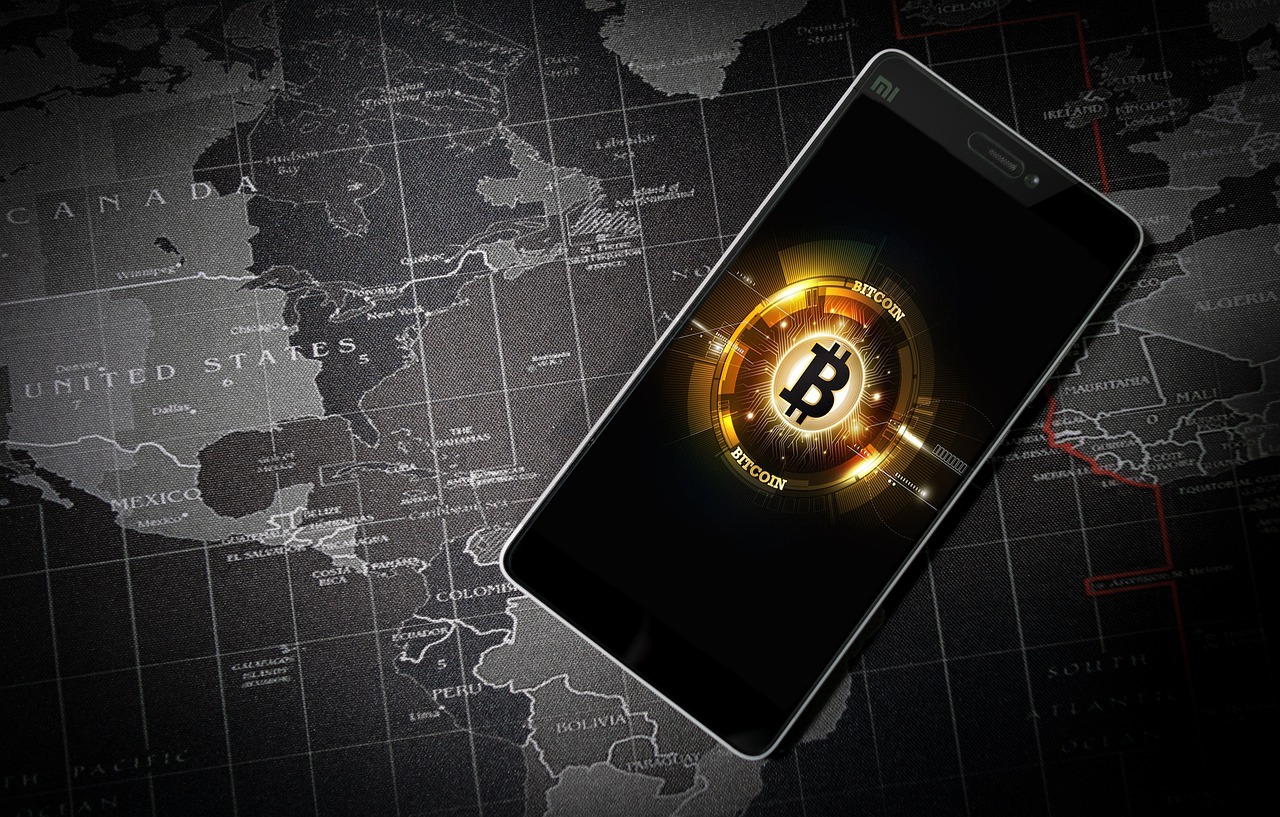The Future is Decentralized: Creative Uses of Blockchain Across Various SectorsThe Future is Decentralized: Creative Uses of Blockchain Across Various Sectors
Welcome to the frontier of innovation, where the traditional boundaries of industries are being redefined and reshaped by an unstoppable force: blockchain technology. Imagine a world where trust is built into every transaction, creativity flows freely across platforms, and collaboration knows no borders. In “The Future is Decentralized,” we embark on an exhilarating journey through diverse sectors—from finance to art, healthcare to supply chains—uncovering groundbreaking applications that harness the power of decentralization. Join us as we explore how visionary thinkers leverage blockchain not just as a digital ledger but as a catalyst for transformation, sparking new ideas and revolutionizing how we live, work, and connect. Buckle up; the future awaits.
Revolutionizing Supply Chain Management
 Blockchain technology is proving to be a game-changer for supply chain management by providing unprecedented transparency and traceability. Traditional supply chains often suffer from inefficiencies and lack visibility, leading to fraud, counterfeiting, and delays. Blockchain addresses these challenges by creating a tamper-proof, decentralized ledger that records every transaction in the supply chain.
Blockchain technology is proving to be a game-changer for supply chain management by providing unprecedented transparency and traceability. Traditional supply chains often suffer from inefficiencies and lack visibility, leading to fraud, counterfeiting, and delays. Blockchain addresses these challenges by creating a tamper-proof, decentralized ledger that records every transaction in the supply chain.
This allows for real-time tracking of goods from origin to destination, ensuring authenticity and reducing the risk of fraud. Companies like IBM and Maersk have already implemented blockchain solutions to streamline their supply chains and enhance operational efficiency.
Enhancing Healthcare Data Management
In the healthcare sector, blockchain is being explored to improve the management and security of medical records. Healthcare data is often fragmented across multiple systems and institutions, leading to data sharing and patient privacy challenges. Blockchain technology offers a decentralized platform for storing and managing health records, enabling secure and interoperable access to patient information. This could enhance the accuracy of diagnoses, facilitate coordinated care among providers, and give patients greater control over their health data. Additionally, blockchain’s immutability ensures that medical records are protected from tampering and unauthorized access.
Transforming Financial Services
Beyond its role in cryptocurrency, blockchain technology is making significant inroads into the financial services industry. Financial institutions are exploring blockchain for its potential to enhance security, reduce transaction costs, and increase transparency. For instance, blockchain can facilitate faster and more secure cross-border payments by eliminating intermediaries and reducing settlement times. Additionally, smart contracts—self-executing contracts with terms directly written into code—are being used to automate and streamline various financial transactions, such as loan agreements and insurance claims. Central banks and financial organizations invest in blockchain research and pilot projects to leverage these benefits.

Empowering Digital Identity Management
Digital identity management is another area where blockchain is demonstrating transformative potential. Traditional identity verification processes are often cumbersome and prone to fraud. Blockchain technology provides a secure, decentralized method for managing digital identities, allowing individuals more control over their personal information. Through blockchain-based identity systems, users can authenticate their identity without relying on centralized authorities, reducing the risk of identity theft and streamlining access to services. Projects like Sovrin and uPort are leading the way in developing blockchain solutions for digital identity management.
Enabling Decentralized Finance (DeFi)
Decentralized Finance (DeFi) represents a rapidly growing sector that leverages blockchain technology to create open, permissionless financial systems. Unlike traditional economic systems, DeFi platforms operate without intermediaries such as banks or brokers. Using blockchain, DeFi applications offer various financial services—including lending, borrowing, trading, and yield farming—directly on decentralized networks. These platforms use smart contracts to automate processes and ensure transparency, potentially democratizing access to financial services and reducing barriers to entry for underserved populations.
Supporting Intellectual Property and Copyright Protection
Blockchain technology is also being explored for its potential to protect intellectual property (IP) and manage copyright issues. By recording ownership and provenance on a decentralized ledger, blockchain can help artists, authors, and creators prove ownership of their work and track its usage. This can mitigate issues such as copyright infringement and unauthorized distribution. Projects like Ascribe and Myco are developing blockchain-based solutions to support the management and protection of creative works, ensuring that creators are fairly compensated and their IP rights are upheld.

Facilitating Transparent Voting Systems
Another promising application of blockchain is developing transparent and secure voting systems. Traditional voting methods are often criticized for their vulnerability to fraud and lack of transparency. Blockchain technology offers a way to create tamper-proof, verifiable voting records, ensuring the integrity of election results. Using blockchain to record votes, election processes can become more transparent and accessible, potentially increasing public trust in democratic institutions. Several pilot projects and initiatives explore blockchain-based voting systems to enhance electoral transparency and security.
Blockchain technology extends beyond its association with Bitcoin, offering innovative solutions across various industries. From enhancing supply chain transparency to revolutionizing healthcare data management, blockchain applications transform businesses and organizations’ operations. As the technology matures, its potential to address longstanding challenges and create new opportunities will only grow. By exploring and adopting blockchain solutions, industries can harness the power of distributed ledger technology to drive efficiency, security, and innovation in the digital age.…



 Before you start shopping, establish a budget for your new smartphone. Taking into account the cost of the phone itself and any applicable taxes or fees associated with it can help you narrow down your choices. You should also consider whether you want to purchase a monthly plan or pay as you go and compare different providers’ prices and features to find the best fit. This will ensure that you don’t end up spending more than you can afford.
Before you start shopping, establish a budget for your new smartphone. Taking into account the cost of the phone itself and any applicable taxes or fees associated with it can help you narrow down your choices. You should also consider whether you want to purchase a monthly plan or pay as you go and compare different providers’ prices and features to find the best fit. This will ensure that you don’t end up spending more than you can afford.
 When it comes time to make the purchase, consider the features you need from your smartphone. Do you want a phone with a great camera for taking pictures and videos? Are you looking for something with a long battery life that can last throughout the day? Or do you need one with a lot of storage space so that you can store all your favorite apps and media? Think about what’s important to you before making your decision.
When it comes time to make the purchase, consider the features you need from your smartphone. Do you want a phone with a great camera for taking pictures and videos? Are you looking for something with a long battery life that can last throughout the day? Or do you need one with a lot of storage space so that you can store all your favorite apps and media? Think about what’s important to you before making your decision.
 Since the invention of the computer, the office work has become easier. It is used to both store all company data and also facilitates communication through emails and other channels. An office without the computer hardware is as good as dead.
Since the invention of the computer, the office work has become easier. It is used to both store all company data and also facilitates communication through emails and other channels. An office without the computer hardware is as good as dead. Throwing documents into the trash can before shredding can pose some threats to a business. Not many people would like other to pick a sensitive document from the trash and use it against them.
Throwing documents into the trash can before shredding can pose some threats to a business. Not many people would like other to pick a sensitive document from the trash and use it against them.